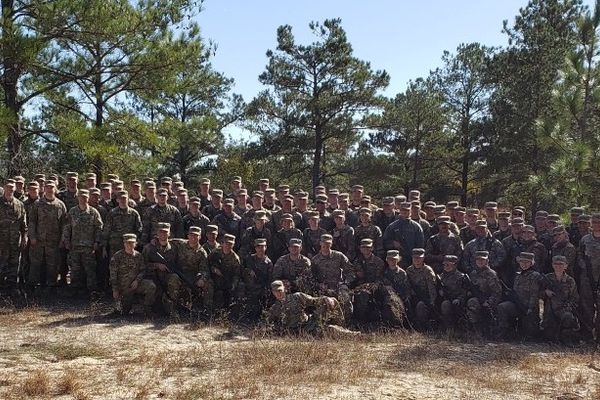The Army Reserve Officer Training Corp (ROTC) is a nationwide, college-campus-based program designed to prepare students for a future as an U.S. Army Officer. While the program is certainly a defining part of a participant's life, ROTC can operate seamlessly alongside normal everyday college activities.
I decided to join the Paladin Battalion, our ROTC program on campus, before arriving at Furman. When I informed my family and friends of my choice, I was met with support, questions and many concerns. Several of my family and friends were worried I was “giving up my college experience” or that “I won’t have a normal college life.” When I arrived on campus, I was met with similar questions from my peers. Everyone seemed equally interested and perplexed by ROTC, and many were keen to learn how my participation in the program affected my college experience.
At Furman, cadets are hard to categorize. In fact, when we are not in uniform, you probably wouldn’t suspect we were anything but regular students. There are cadets in a variety of majors. Some play sports, competing at levels that span from intramural to D1. Many are also in Greek life, and others are involved in a variety of campus clubs and organizations. There are even cadets working campus jobs in housing and admissions. Instead of taking students away from the “normal” college experience, ROTC encourages cadets to be involved on campus. The program actually rewards engagement, allotting points for participation in certain activities and, after graduation, allowing senior cadets to use those points when selecting positions in the Army.
Cadets across the country can attest to the little Q&A session we go through sometimes, especially freshman year, when a non-ROTC student learns we are a cadet. The most common questions are: Does ROTC take up all your time? What do you do? Is it hard getting up early?
In the easiest explanation, ROTC is like any course one takes at Furman. We have weekly class meetings, Physical Training (PT) three days a week and a lab once a week. The total weekly commitment is about 10 hours. There are some weekend commitments, but most of our weekends are for us to do what we please. We engage in a variety of material, most of which depends on class year. As a cadet progresses through the program, their knowledge on military topics, responsibility and leadership abilities increase. We learn and practice battle tactics, land navigation, chain of command, weapon-use (like shooting and grenade throwing) and more. We gain valuable skills like grit and resilience, physical and mental strength, communication skills, decision-making and how to admit when you don’t know something and focus on learning it. Like any class at Furman, we have outside work to complete for the betterment of the battalion and ourselves. We give the PT workouts our full effort, and you may even see cadets putting in additional work in the Physical Activities Center after PT. And yes, the 6 a.m. wakeups do take some getting used to, but they become part of the week.
To answer the many questions: ROTC is a big part of my college experience, but it is not all-consuming. I have an identity besides Cadet Geraghty. And, in all sincerity, my time at Furman has not been standard because there is no such thing as the “normal” college experience. Every student has unique interests and a career that follows suit. We are not one dimensional, and I do not fit into any singular mold. I play on an intramural soccer team, I am involved with the outdoors club, I work on the Furman Farm, I write for this newspaper, I spend a lot of time doing homework, I play card games with my friends and I enjoy group dinners in the dining hall. I am all these things and more, just as every ROTC cadet has an identity behind their uniform.
In a little over one year in the program, ROTC has become a seamless part of my college life. ROTC has not taken away from my college experience but actually enhanced it.
If you would like to learn more about ROTC use this link for further information: https://www.furman.edu/academics/military-science/
